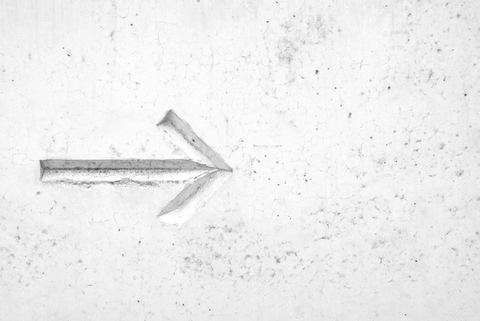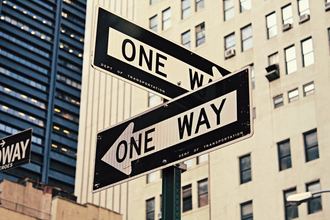 Photo by Brendan Church on Unsplash Photo by Brendan Church on Unsplash A few weeks ago, I was in my office with a student and his mom. We were discussing his first college list and the research he had done. I’m always just as interested in what a student dislikes about a school as I am in what they like about it. This particular student kept coming back to variations on the same complaint: the admit rate was too high, or the average SAT score was too low, or their engineering program wasn’t very high in the rankings. Simply put, this school isn’t good enough. I hear this fairly often from my students. But that’s not surprising considering that the US News and World Report college rankings have been around as long as I have. My follow-up to this kind of objection is to dig into where this concern is really coming from. For many students and parents, it’s an economic issue. They value the rankings because they believe that future employers value them, that people who graduate from prestigious colleges have a better chance of getting good jobs. So I told them, “I’m going to say something controversial. I truly believe that you can get just as good an education and find just as good a job and live just as good a life if you go to San Jose State as if you go to Stanford.” I could tell they were skeptical, and realistically, they might never fully believe that. But we’re planting seeds here. Which is why I was thrilled when I heard about the latest white paper from the Challenge Success team: A "Fit" Over Rankings: Why College Engagement Matters More Than Selectivity. Challenge Success often works within high schools recommending changes like block schedules and limited AP classes to try to foster a saner and more supportive educational environment. But they found that they were getting a lot of pushback from school administrators who worried that making these changes would disadvantage their students in the college application process, and worse, for the rest of their lives. So they set out to find the answer to the question, “Does it matter where you go to college?” I won’t try to summarize the entire report here, but I will share a few takeaways:
Challenge Success argues – and I agree – that there is no correlation between where you go to college and the overall success and happiness of your life. What actually matters is what you do in college, like devoting time to extracurriculars you care about, connecting with a professor or mentor, and finding jobs and internships that allow you to take what you’re learning in the classroom out into the real world. So rather than spending your time and energy worrying about whether or not you’ll get into a “good” school, focus on how you can be a good student, a good worker, and a good person.
0 Comments
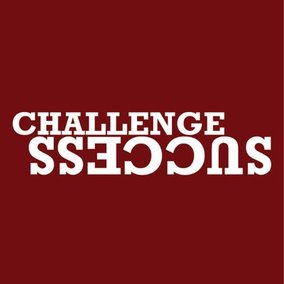 Two weeks ago, I attended a talk hosted by Challenge Success with my colleague Monica (“Talk about a fun nerd activity for a Friday!” she replied when I invited her). If you’re not familiar with Challenge Success, they’re an organization that provides strategies and resources to parents, students, and schools that are interested in minimizing the stress and anxiety that seem to go hand-in-hand with our current education system. I can’t speak highly enough about them, and I strongly encourage you to visit their website, or read any of the books written by Challenge Success cofounders, Denise Pope and Madeline Levine. For this particular event, they had invited clinical psychologist Wendy Mogel to speak. Mogel specializes in, “the protection and promotion of self-reliance, resilience, accountability and exuberance,” all qualities I think parents would agree are desirable. In the course of her talk, Mogel pinged deftly between anecdotes from her work with students and parents to Key and Peele sketches and, her personal favorite, headlines from The Onion. At one point, she spoke about the anxiety she hears from many parents, an anxiety that seems to be rooted in the lack of control parents have over their children. This often comes out in pressure to pick a certain major or a certain career. “But,” Mogel said, “we don’t know what skills are going to be required for 21st-century jobs; it might be robotics or it might be foraging, Mandarin or welding.” I really appreciated Mogel saying this to a room full of parents and educators. I think we have a tendency to look at the current job market, see gaps, and tell people to go fill that gap. But the problem with that is that those predictions are only good for a short period of time. We are not very good, historically, at imagining the ways technology and policy will change our lives and our careers. Because of that, I’ve always advocated for investing in skills like close reading, making connections, and analyzing data. Time and time again, these kinds of high-level, abstract abilities sustain workers in a wide range of jobs, and provide a supportive foundation when people change careers. People are working more years than ever before, and the best way to prepare for that is to expect that things will change. So if you decide to study robotics in college, maybe take a foraging class too, just in case. A few years ago, I read an article that asked readers if they were living their lives in a way that would result in an impressive resume, or in a sincere and moving eulogy. In this article, Arianna Huffington writes:
“The eulogy is the foundational document of our legacy, of how people remember us, of how we live on in the minds and hearts of others. And it is very telling what you don't hear in eulogies. You almost never hear things like: ‘What everybody loved most about her was how she ate lunch at her desk. Every day.’ Or: ‘He was proud that he never made it to one of his kid's Little League games because he always wanted to go over those figures one more time.’” Many of us know, intellectually, that the things that bring us professional success are not always the same as the things that bring us happiness. And yet, we still have a hard time shifting our attention from the former to the latter. In the same way, we have a hard time communicating who we are without falling back on our professional designations, something I’ve talked about with a number of my interviewees. Why do we define ourselves more by our jobs than by our hobbies, by the things that bring us money than by the things that bring us joy? Who are we then when we’re between jobs, or before we’ve chosen a career? Why am I more confident in calling myself a college counselor than I am in calling myself a writer? As we head into the Thanksgiving holiday, reconnecting with old friends and meeting new people, I’m challenging myself to remember that we are more than just our jobs. Instead of asking every high schooler where they’re planning to go to college and what they want to major in, I’m going to ask them what they do for fun. Instead of asking every new person I meet what they do for a living, I’m going to ask them if they have any upcoming travel plans. And instead of asking my friends and family how work is going, I’m going to ask them how they’re lives are going. If I’ve learned one thing from the When I Was 17 project, it’s that our careers are only one piece of the puzzle. No matter how much we love our work and how much time we devote to it, the story that will ultimately get told about us is going to be about our adventures and our connections, about the times we were brave and the times we were vulnerable. And that story is something we can start sharing right now. 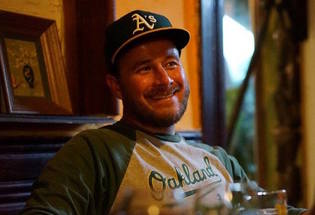 Adam Eads is the new director of supply chain for consumer package goods at Fair Trade USA, which, I know, sounds kind of dry, but in reality involves cool business trips to coconut farms in the Philippines. Adam has had exactly the kind of career that I imagined hearing about when I started this project, one full of risk-taking and left turns and serendipitous connections, along with a fair share of bartending. Our conversation has been edited for length and clarity. When you were 17, what did you want to be? I'm sure a lot of people say that they have no idea, but I really had no idea what I wanted to do. I'm sure I wanted to be an astronaut one week, but I never pegged myself to anything. But looking back, I think where I've ended up makes a ton of sense. I've always had a strong desire to be other places. I grew up in Orange County and I hated where I lived. When I got my driver’s license, my friends and I were always going camping, going on boat trips, just trying to get somewhere else. The other thing was my dad used to travel a lot for work when I was a kid, so it was really normal to me that he would go to Indonesia for a month every year and a lot of other places. He had a sort of vagabond gene I always remember around Halloween, this box would show up at our house and it had been on a boat for six weeks and it was all raggedy. We'd open it up and there would be all these little trinkets wrapped in newspaper in a language I didn't understand that he'd picked up for us. And we always just had that stuff around our house, and I remember one of my friend's moms commenting on it. And I didn't even realize that was weird. I think given those things, it makes a lot of sense where I've ended up. But I didn't know what international development was when I was in high school. I didn't know that was a thing. How did you decide to attend University of California, Santa Cruz? I started at San Diego State, and I went there for two and a half years, and then I transferred to UC Santa Cruz. San Diego felt like I was getting away from home, but I was still close enough. I remember visiting San Francisco State and that seemed cool, but I wasn't sure that was where I wanted to live. And I remember visiting other State schools and none of them really spoke to me. I don't think San Diego State did either, but it seemed kind of fun. I had wanted to go to UC Santa Cruz in high school, but I couldn't get in. So a year or so later, I was not really feeling fulfilled at San Diego State, and I decided to apply to Santa Cruz. I got really lucky because, at the time, Santa Cruz had gotten a mandate to accept more students. So anybody that qualified was getting in at that time. It really was a small community, and this was in the late 90s before they even offered grades. Narrative evaluation was still the main method of feedback, so I actually chose not to get grades. I loved it. How did you choose your major? I had thought I wanted to major in philosophy. I took philosophy my first semester at San Diego State, and I had this professor who had a serious drinking problem. She missed like half the classes, so that kind of soured me on philosophy as a major. And then I took a really great sociology class and it gave me a lot to think about. I don't think I really knew what sociology was, but I liked that it wasn't fixated on right answers. I don't like looking for right answers. I like answering questions with more questions. And that's really the core of sociology. I like that it seemed applicable to everything and nothing at the same time. Like it was knowledge for knowledge's sake, rather than for a job. There's certainly not a booming field of sociologists out there making livings at it. But I liked that you could take it and apply it to a lot of different things. How did you get from college to where you are now? I graduated in March of 2001. I had only been in Santa Cruz for a year and half at that time and I really liked it so I wanted to stay there. But within months, the economy collapsed and then September 11th happened. So that was when I started bartending actually. There wasn't really a better way to make a living in Santa Cruz at the time, and I was just out of college, I didn't have any job experience. And I still didn't really know what I wanted to do. I had taken a semester off in my second year at San Diego State. I saved a bunch of money, went to Europe, did the whole Eurail thing. It was actually cheaper than being in the US. So I started saving up money for a few months, and then I'd go travel somewhere. I taught English in Japan for six months, and I did a lot of volunteering overseas. Then in 2006, I ended up kind of randomly in Myanmar, and my friend and I were there for the better part of that year. And that's when I really decided that I wanted to work in international development. So I started applying to grad schools overseas, because I knew if I was going to go back to school, I wanted to live abroad somewhere. I ended up at University of Glasgow doing a master's program in environment and sustainable development, which is an economics program. It's funny, I kind of thought, "Oh, I'll go to grad school and then I'll know everything." And it clearly isn’t like that at all. You just basically do another year of college. And so, I still felt like I didn't have all the tools. But I had the credential and I was a little further along. When I graduated in 2008, the economy collapsed again, as luck would have it, and there wasn't a lot of opportunity at that time. So I came back to the States. I was staying in San Francisco with friends, and I ended up couch surfing for a few months. I got a couple of internships, I got a bartending job so I could pay the bills, and then I moved to Oakland. One of those internships turned into a full-time job, and that was my first development job. It was a nonprofit called Foundation for Sustainable Development that worked on developing an alternative to the Peace Corps Program in pretty targeted areas. I ended up managing the programs in Kenya, Uganda, and India, the flow of interns that went into these programs, and the relationships with all of our partners in the communities where we worked. I was making pretty frequent site visits. It wasn't development per se, but I found myself really loving it. It felt like I was preparing these minds, because these young adults would inevitably have these grand notions about going to volunteer in Africa for the summer. And our organization was really good about telling them, "This is not about you doing anything. You're going to be the recipient of all the benefit. You're the one that's going to learn, the one that’s going to have a life-changing experience. You're not going to change anyone's life.” I think you have to stay grounded and stay humble, and recognize that you're not going to fix everything. It’s almost like - sorry, sports reference – being a great hitter in baseball. If you hit .300 for your career, you'll go to the hall of fame. That means you failed 70 percent of the time at the thing you're supposed to be really good at. If you hit .250 for your career, you'll probably play for ten years or more. It means you failed 75 percent of the time. You kind of have to get comfortable with the fact that the things you're working on most of the time aren’t going to work out. I was at FSD for four years, and I left that job feeling a little maxed out. It was a very small organization, and I felt like I had done everything I wanted to there, and I was ready to hit the rest button. I met Maria [my now wife], and we both quit our jobs and bought one-way tickets to India. We traveled around for the better part of that year, then we got engaged, applied for a visa and a green card and all that, and we got married. We came back to the US where I had a very short, but glorious, stint with the Princeton Review. And then I got hired by the previous executive director of FSD who was starting a competitor organization. He was very committed to that model, and he was just getting it off the ground. But it was a little less fleshed out than I thought it was getting into it. After being there for about six months, I realized he was basically trying to carbon copy what FSD had been doing, which I wasn't really sure was the right way to go. I got a call from an organization called Give to Asia, which I had interviewed with a year before. They had another position open up, and asked me if I was interested. I talked to them and it sounded really great, so I went to work for them as a program officer working with donors in the US who wanted to do grantmaking in Asia specifically. I started working with a portfolio of corporate clients, and after a few months I ended up taking over the disaster program. Anytime there was a large disaster in the Pacific, which is almost monthly, we would do some kind of a campaign or work with different donors. I eventually ended up taking over other disaster preparedness programs, and brought them under the same umbrella. Disaster preparedness, at a certain point, is just doing development. You're really trying to create community resilience, like do you have evacuation plans? Do you have an ability to communicate with people? Do people know what to do, first of all? Do they have basic things that we take for granted? That was really interesting work. I really liked it. But I didn't like being so beholden to corporate social responsibility imperatives. So when that grant was coming to an end, I was looking to do something different. My son was also a year old at that time, and I was traveling more. I had taken him and my wife to India and Bangladesh right at the end of my time there, and they got to come out to the fishing village we were in and he got to play with all the kids which was fun. But that wasn't going to be something we could do every time. After that, I took a wrong turn and went to work for another nonprofit called Tech Soup, which, they're great, but it just wasn't what I wanted to do. It was very much a cushy desk job, which is what I thought was the right move at the time, but I realized pretty quickly it was not. I was there for two years, but I had been keeping my eye on Fair Trade USA for a while. I found this job back in June, applied for it, and was hired in two weeks, really fast. And now I'm the director of supply chain for consumer package goods. What that means for us is how do we, as an organization, operate along a supply chain where fair trade commodities are being sourced. I just went on this trip to the Philippines, which was really great because we're seeing amazing outcomes there. In the Philippines, we work primarily with two big companies that export coconuts. And they both have dedicated staff that focus on making the fair trade programs work as well as their organic programs that are kind of side-by-side. And all those things add up to a pretty successful program, which has unlocked some opportunities for people. Looking back, what seems clear to you now? I really like my job right now. I've never been this excited about a new job. But I still wouldn't say I know what I want to do. Even now, when someone asks me where I want to be in five years, damned if I know. I think some people have the ability to map that out a little bit better, and part of me thinks that would have been nice. But I also think a lot of people map it out and they end up in the wrong place anyway. I'm always puzzled by how often people will ask me for career advice, because I've been winging it this whole time. I've just put one foot in front of the other and followed things that I'm interested in. And that's worked for me. In some ways I was really unlucky, and in other ways I was really lucky, because that led me to do other things that were maybe more interesting. 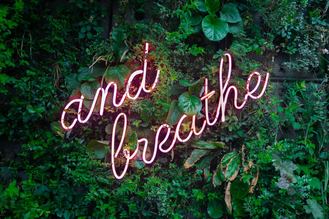 Photo by Max van den Oetelaar on Unsplash Photo by Max van den Oetelaar on Unsplash I had a meeting with a new student this morning, and one of the first questions I ask new students is what they like about their high school. This young woman was enthusiastic about her high school – she likes her classes and teachers, and she has a good group of friends. Then I asked her what she would change about her high school. She told me about the pressure she feels to take harder classes because she’s a good student, even though that would mean giving up time with her friends and family and being able to go to bed at a reasonable hour. How she feels like she should join a bunch of clubs at school to fill out her resume, even though she’s already really involved with her youth group, and works with them on a local and a national level. How she hears people talk about applying to colleges like Duke and the Ivy League and she isn’t really interested in those places. This kind of student is pretty much my ideal. She’s engaged and thoughtful, excited about her future, and not doing things just to impress other people. That’s a tough position to hold as a 17-year-old, and I was really struck by her maturity and self-awareness. I told her what I tell all my students at the beginning of the college application process: what happens over the next year is your choice. You can get caught up in what other people are doing and where other people are applying; you can add one more school in September, and October, and – the horror! – November; you can treat applying to college like playing the lottery, and keep buying more and more tickets, even though every ticket represents a few more essays and another $75 application fee. Or you can challenge yourself sanely, apply to a small, thoughtful list of colleges, start early and work gradually, and know that the success of your college experience is ultimately about what you do while you’re there. It’s easy to forget that this process is ultimately a choice, that you can choose how stressful or how relaxed it is, that the results are pretty much the same either way. After five application seasons, I’ve had kids tell me that they wish they hadn’t applied to so many schools, that getting so many no’s was harder than they expected, even though they knew it was a long shot. But I’ve never had a kid tell me that they wish they had applied to more schools. In the same way, every person I’ve interviewed for “When I Was 17” has told me that they wish they had paid less attention to what other people thought of their choices, whether college or major or career. How they wish they had taken it less personally when things didn’t go the way they wanted them to. How they wish they had worried less about knowing exactly what was going to happen next. So whether you’re in high school, college, or living your grown-up life, it’s your choice. And if I have to decide between fear and stress and doubt, or confidence and empowerment, that choice pretty much makes itself. |
What is the When I Was 17 Project?When I Was 17 is a blog series dedicated to collecting the varied stories of people's career paths, what they envisioned themselves doing when they were teenagers and how that evolved over the course of their lives. I started this project with the goal of illustrating that it's okay not to know exactly what you want to do when you're 17; many successful people didn't, and these are a few of their stories.
Archives
October 2020
|
